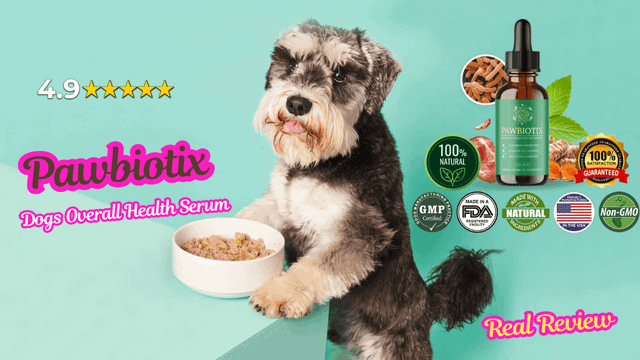Unleashing the Power of Prevention: A Comprehensive Guide to Protecting Your Canine Companion from Cancer
$49.00
Protect your beloved pup! Discover science-backed tips to reduce your dog’s cancer risk. Learn how simple lifestyle changes, healthy diets, and preventive screenings can safeguard their well-being.
Description
Preventing Canine Cancer: A Comprehensive Guide for Dog Owners
Cancer is a leading cause of death in dogs, accounting for nearly half of all canine deaths. While not all cancers are preventable, there are a number of things dog owners can do to reduce their pet’s risk of developing this devastating disease.
1. Spay or Neuter Your Dog
Spaying or neutering your dog is one of the most effective ways to prevent certain types of cancer, including mammary cancer in females and prostate cancer in males. Spaying or neutering also reduces the risk of other health problems, such as pyometra (uterine infection) and prostatitis.
2. Keep Your Dog at a Healthy Weight
Obesity is a major risk factor for cancer in both humans and animals. Dogs that are overweight or obese are more likely to develop a number of different types of cancer, including lymphoma, mammary cancer, and skin cancer. Keeping your dog at a healthy weight can help reduce their risk of developing cancer.
3. Feed Your Dog a Healthy Diet
A healthy diet is essential for maintaining your dog’s overall health and well-being. A diet that is high in fruits, vegetables, and whole grains can help boost your dog’s immune system and protect them from a variety of health problems, including cancer.
4. Exercise Your Dog Regularly
Exercise is another important factor in maintaining your dog’s health. Regular exercise can help keep your dog at a healthy weight, boost their immune system, and reduce their risk of developing cancer.
5. Avoid Exposure to Carcinogens
Carcinogens are substances that can cause cancer. Dogs can be exposed to carcinogens through a variety of sources, including:
- Tobacco smoke: Secondhand smoke is a major risk factor for cancer in both humans and animals. Dogs that are exposed to secondhand smoke are more likely to develop lung cancer, lymphoma, and other types of cancer.
- Environmental pollutants: Dogs can be exposed to environmental pollutants through the air they breathe, the water they drink, and the food they eat. Exposure to environmental pollutants can increase the risk of developing a variety of different types of cancer, including skin cancer, liver cancer, and kidney cancer.
- Certain chemicals and medications: Some chemicals and medications can cause cancer in dogs. These include certain flea and tick medications, herbicides, and pesticides.
6. Get Your Dog Vaccinated
There are a number of vaccines available that can help protect dogs from cancer-causing viruses and bacteria. These vaccines include:
- Canine parvovirus vaccine: Canine parvovirus is a highly contagious virus that can cause severe vomiting and diarrhea in dogs. The parvovirus vaccine can help protect dogs from this virus and reduce their risk of developing parvovirus-associated enteritis, which is a type of cancer that can affect the intestines.
- Canine distemper vaccine: Canine distemper is a respiratory virus that can cause a variety of symptoms, including fever, vomiting, diarrhea, and seizures. The distemper vaccine can help protect dogs from this virus and reduce their risk of developing distemper-associated pneumonia, which is a type of cancer that can affect the lungs.
- Canine rabies vaccine: Rabies is a fatal virus that can be spread to humans through the bite of an infected animal. The rabies vaccine can help protect dogs from this virus and reduce their risk of developing rabies.
7. Be Aware of Signs of Cancer
It is important to be aware of the signs of cancer in dogs so that you can seek treatment as early as possible. Some of the most common signs of cancer in dogs include:
- Lumps or bumps: Lumps or bumps that appear on your dog’s body can be a sign of cancer. It is important to have any new lumps or bumps checked out by your veterinarian as soon as possible.
- Weight loss: Unexplained weight loss can be a sign of cancer. If your dog is losing weight without any obvious reason, it is important to have them checked out by your veterinarian as soon as possible.
- Changes in appetite: Changes in appetite, such as eating less, eating more, or eating different things, can be a sign of cancer.
- Lethargy: Lethargy is a lack of energy or enthusiasm. If your dog is suddenly lethargic, it is important to have them checked out by your veterinarian as soon as possible.
- Vomiting: Vomiting can be a sign of cancer, especially if it is accompanied by other symptoms such as weight loss, lethargy, or changes in appetite.
- Diarrhea: Diarrhea can be a sign of cancer, especially if it is accompanied by other symptoms such as weight loss, lethargy, or changes in appetite.
- Coughing: Coughing can be a sign of cancer, especially if it is accompanied by other symptoms such as weight loss, lethargy, or changes in appetite.
- Difficulty breathing: Difficulty breathing can be a sign of cancer, especially if it is accompanied by other symptoms such as weight loss, lethargy, or changes in appetite.
Conclusion
Preventing cancer in dogs is not always possible, but there are a number of things dog owners can do to reduce their pet’s risk of developing this devastating disease. By following the tips outlined in this article, you can help keep your dog healthy and happy for many years to come.





